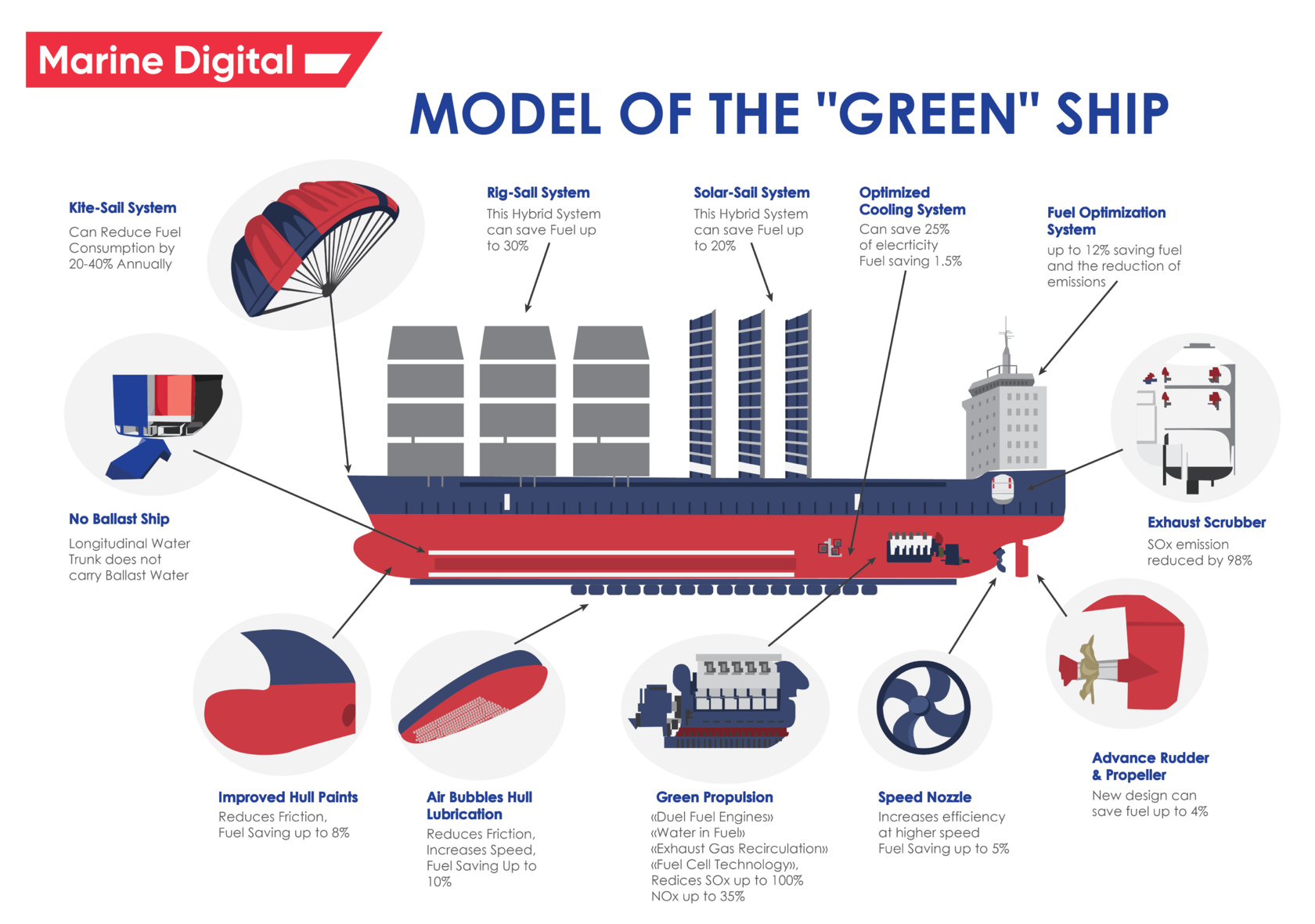
Introduction
Sustainable shipping is a crucial concept in today’s world, where environmental sustainability and reducing greenhouse gas emissions are essential. Utilizing ocean energy is a key element in achieving sustainable maritime transport as it reduces reliance on fossil fuels and minimizes the carbon footprint of the shipping industry.
Historical Background
The idea of sustainable shipping has gained significant momentum in recent times due to growing concerns about climate change and the need to protect the environment. The emergence of ocean energy as a viable solution has further fueled this transition, offering a sustainable and renewable energy source for powering ships.
Key Concepts and Definitions
Sustainable shipping refers to the adoption of practices and technologies that reduce carbon emissions and promote environmental sustainability in maritime transport. Ocean energy encompasses various forms of renewable energy derived from the ocean, such as wave energy, tidal energy, and offshore wind energy. By tapping into these resources, ships can operate using clean and renewable energy, reducing their impact on the environment.

Main Discussion Points
Potential of Ocean Energy in Sustainable Shipping
Ocean energy offers numerous advantages for sustainable shipping. It is a renewable energy source that can be constantly replenished without depleting natural resources. The abundance of ocean energy makes it a viable option for meeting the energy demands of the shipping industry. Utilizing ocean energy can significantly reduce greenhouse gas emissions, improve air quality, and mitigate the effects of climate change. From an economic perspective, adopting ocean energy in shipping operations can lead to cost savings and create new job opportunities in the renewable energy sector.
Technological Advances in Ocean Energy
The technology for harnessing ocean energy has evolved over the years, with advancements in wave energy converters, tidal turbines, and floating offshore wind farms. Ongoing research and innovation aim to enhance the efficiency and scalability of ocean energy conversion systems, paving the way for large-scale adoption in commercial shipping.
Environmental Impacts and Sustainability Considerations
While ocean energy offers significant environmental benefits, it is crucial to consider potential impacts on marine ecosystems. Proper planning and mitigation measures must be in place to minimize adverse effects. Navigational safety should also be prioritized to ensure the smooth integration of ocean energy installations with existing shipping infrastructure.

Case Studies or Examples
Real-world projects and initiatives, such as those in the Orkney Islands in Scotland, have successfully implemented ocean energy in maritime transport. These case studies provide valuable insights into the practical implementation of ocean energy technologies and the positive outcomes they have achieved in terms of reducing carbon emissions and promoting sustainable shipping practices.
Current Trends or Developments
There is a growing trend towards the adoption of ocean energy in sustainable shipping. Research findings and technological advancements continue to enhance the feasibility and efficiency of ocean energy conversion systems. Policymakers worldwide are implementing supportive policies and incentives to accelerate its adoption in the shipping industry.
Challenges or Controversies
Integrating ocean energy into existing shipping infrastructure and operations poses challenges such as high initial investment requirements and technical and operational challenges due to the intermittent nature of certain forms of ocean energy. Controversies may arise regarding potential environmental impacts, emphasizing the need for thorough environmental assessments and stakeholder engagement.

Future Outlook
The future of ocean energy in maritime transport looks promising. Advancements in technology and decreasing costs are expected to increase the role of ocean energy in sustainable shipping. Growth in the industry will be driven by advancements in energy storage systems, allowing ships to rely on ocean energy even during periods of low availability. Supportive government policies and international collaborations can further accelerate the adoption of ocean energy in shipping, leading to a greener and more sustainable maritime transport sector.
Conclusion
Utilizing ocean energy holds great potential in achieving sustainable shipping and reducing carbon emissions. By tapping into this vast and renewable resource, ships can operate using clean and renewable energy, contributing to environmental protection and mitigating climate change. Continuous research, technological advancements, and collaboration among stakeholders are necessary for the successful integration of ocean energy into the shipping industry. With concerted efforts, the power of the ocean can revolutionize maritime transport and pave the way for a greener future.
References
Smith, C. J., & Muller, C. (2018). Sustainable maritime transport and the use of ocean energy: A review. Renewable and Sustainable Energy Reviews, 81(Part 2), 2504-2512.
Bal, H., & Musa, I. (2020). Ocean Energy and Sustainable Shipping. In Renewable Energy and Sustainable Development (pp. 21-42). Springer, Cham.
Brookes, K., & Woodall, P. (2017). The Potential for Ocean Energy Solutions in the Shipping Sector. In Global Energy Policy and Security (pp. 283-302). Springer, Cham.




